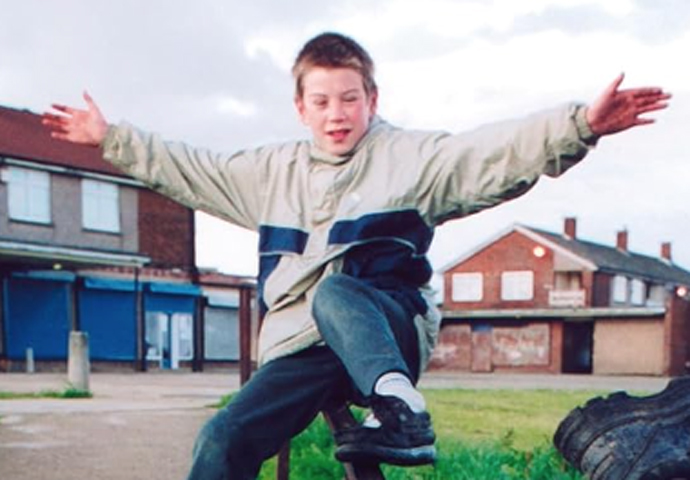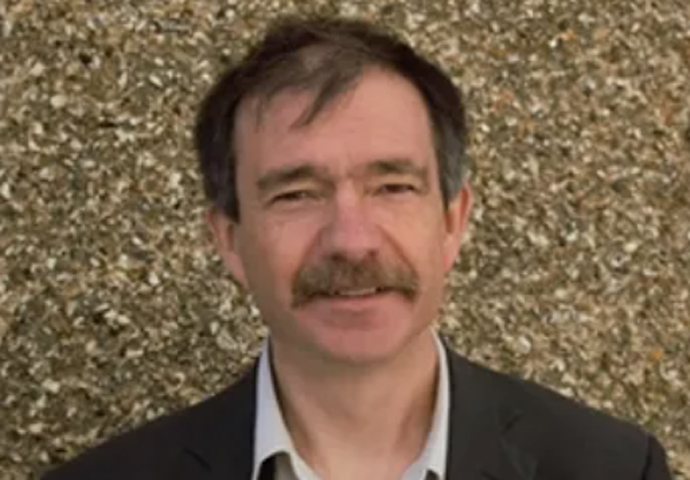‘Political parties tend to describe white working-class people as victims’
Joel Budd’s new book goes in search of what the UK’s white working class really thinks and needs. Dan Carrier reports
Friday, 16th May 2025 — By Dan Carrier

Cover image from Underdogs: The Truth About Britain’s White Working Class [John Birdsall / Alamy]
A FORM of “ventriloquised xenophobia”, used by those in power to project racism into the mouths of others, is partly one of the reasons the UK’s white working class is sneered at.
In a new book, Underdogs, author Joel Budd has traversed England to hear the experiences of white working-class people – and has a powerful message about politicians’ assumptions about what this poorly defined group think, want and need.
Joel grew up in Dartmouth Park and is The Economist’s editor for their British section.
He noted how sections of the media and words from the politicians’ soap box increasingly referred to a voter group they dubbed the “white working class”. It was a homogeneous blob, often couched in terms that commentators were more comfortable using, but still an ill-defined group, found somewhere beyond the horizon of north London and somewhat out of sight, but existing nonetheless.
“I was amazed to see many journalists and politicians had become obsessed with the white working class,” he recalls when he returned to writing about Britain for The Economist after spending time in the US. “Sometimes they used code words – ‘red-wall voters’ or ‘the traditional working class’ – but it was clear what they meant,” he says.
He noticed how politicians were using what they saw as a downtrodden proletariat as an excuse to shape oppressive immigration policy.
Politicians vocalised racism and excused it by pretending they are reflecting the views of underrepresented white working-class people.
Joel describes the pitch as something like this: “They are keen to smuggle their prejudices into the mouths of others. ‘Please understand it isn’t that I detest ethnic diversity or mass immigration, they say. ‘But white working-class people do detest it and their views ought to be respected.’
“In this way, the prejudices of the suburban golf club are imputed to the council-estate boxing club. It is a kind of ventriloquised xenophobia.”
Joel’s journey takes him into pockets of communities that provide a canvas for questions about the state of the nation.
“I’m going to suggest a cynical explanation,” he says of the claims that white working-class Britons are inherently racist. “Political parties tend to describe white working-class people as victims. Right-wingers do this explicitly: they argue that white working-class people are suffering as a result of a liberal conspiracy against them. Recently, Labour has started to do much the same, although it is less explicit. Keir Starmer gave a speech in March, in which he promised to make it harder for asylum-seekers to reach Britain in small boats. There are many good reasons to despair about small boat crossings, but Starmer decided to talk about the effect on working-class people.

Joel Budd
“He said: ‘There is little that strikes working people as more unfair than watching illegal immigration drive down their wages.’
“This is complete nonsense. Nobody’s wages are lower as a result of 40,000 people arriving in small boats every year. Apart from anything else, asylum-seekers aren’t allowed to work. Starmer was trying to launder a ludicrous argument by presenting it as the collective opinion of working-class people.”
As he delves into stories of working-class experiences, Joel does not base his reactions on an ill-defined group. Instead, his journeys found three particular “places” that had enlightening stories.
“There isn’t a single white working-class culture in Britain, any more than there is a single white middle-class culture,” he says. “Among other things, people are shaped by the places where they live. At a minimum, I think we should distinguish between three sorts of places, which I call heartlands, enclaves and colonies. These places tend to give rise to different cultures. Heartlands are places that are changing slowly. They’re often ageing. Most Britons would struggle to put them on a map. Some of the best examples are mining towns.
“Enclaves are changing more quickly. They are still mostly white and working-class, but they are rapidly becoming more middle-class or more ethnically diverse, and often both at once. The best examples are suburban council estates.
“Colonies are rarer, and stranger. They are places that have seen large inward migrations of white working-class people. Some of the post-war new towns fall into this category. My favourite example is Thetford, in Norfolk, where people speak with 1970s London accents.”
And drawing on traditional ideas of who the white working class are needs to be rethought: if Joel had a message for the Labour prime minister he would suggest making sure he was picturing the right demographic to begin with.
“I would say, whenever you want to speak about white working-class people, you should try picturing a young woman who works in a care home,” he said. “Stop imagining middle-aged men in heavy industry.
“They’re important, of course, but they’re not the face of the modern white working class.”
Joel has watched the rise of bigoted politics poison the British electoral landscape with the recent gains by Reform UK in council elections. While still a tiny party, their empty-headed rhetoric garners headlines that gives them more punch than they deserve.
How can we knock out such damaging nonsense? Perhaps by taking them head on and showing up how odd and dysfunctional their philosophy is, he says.
“They are a strange combination of seriously dangerous and completely unserious,” says Joel.
“Ignoring them and hoping they go away doesn’t work. Taking them on directly seems not to work either: Nick Clegg tried it and failed. If you hope that power will expose them, American history suggests you are wrong.
“Donald Trump fumbled the Covid pandemic; more than a million Americans died. What did Americans do? They gave him a second term.
“One weapon that hasn’t been used much against Reform UK is ridicule. Politicians could try insulting them. Be cruel. In America, the Democrats’ campaign briefly came alive when Tim Walz called leading Republicans “weird”. It drove them nuts, which suggests it worked.
“Other than that, the best thing to do is to try and improve people’s lives. This might have no effect on Reform’s popularity. But if it fails, well, you’ve still made people’s lives better.”
Making working-class lives better is a job that government after government has set out to achieve – and failed.
“This is going to sound strange, but I think it is a bad idea to devise policies to help white working-class people,” he adds. “It’s much better to have policies that will benefit all working-class people, or the entire population.”
• Underdogs: The Truth About Britain’s White Working Class. By Joel Budd, Picador, £20